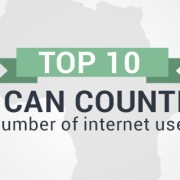Kenya’s spearheading ICT program
The final stage of Kenya’s National Optic Fibre Backbone Infrastructure (NOFBI) project will take off later this year.
NOFBI to enter its final stage. The announcement was made last week by the ICT cabinet secretary Dr Fred Okeng’o Matiangi during the Presidential Digital Talent Programme in Nairobi. The Optic Fiber Route survey was completed in May 2014 for all of Kenya’s 47 counties, and the project has seen eleven phases so far, the last of which was inaugurated in the Embu County in September 2014. The network plan foresees a total of 2,100 kilometres of sophisticated fiber optic cable across the country, 1,600 of which will be laid out by the end of 2015. The project contractor remains Huawei Technologies, who has been in charge of the project’s implementation since its initial launch in 2009. The funding will be provided by the Government of Kenya, supplemented with a significant loan from the Chinese government.
In the past ten years the Government of Kenya has had a leading role amongst African countries in the promotion of high-speed cable connections, spearheading initiatives such as NOFBI and TEAMS (The East African Marine System), towards the construction of both intercontinental submarine communication cables and their terrestrial extensions. It is no surprise that Nairobi, Kenya’s capital, as been the only African city to rank amongst the 21 ‘Smartest Cities’ in the world, for the second year in a row — according to an annual report released by The Intelligent Community Forum (ICF) — because of its economic mobility and innovative ecosystem, it’s ICT policies, and the partnerships between multinational and regional tech corporations (such as Huawei, as well as Microsoft and Google) and local Universities.
Next phase: TV Digital Switch and LTE networks.
“On the 18th of June after the digital migration we will start on building the LTE network to allow Kenyans broader access to the internet, and we will have a real 21st century government, as it were”
Added ICT cabinet secretary Dr Fred Okeng’o Matiangi during his speech. Apparently, after its halts and controversies the Communications Authority of Kenya is determined to meet the global deadline for the switch from analogue to digital TV signal, due in June 2015, in order to provide a better utilization of frequencies, a better quality, and more choice. And making great strides towards broadband wireless access, the following phase for Kenya will be the realization of an ambitious Long-Term Evolution (4G LTE) network, providing an enhanced high-speed communication for mobile phones and data terminals.






Leave a Reply
Want to join the discussion?Feel free to contribute!